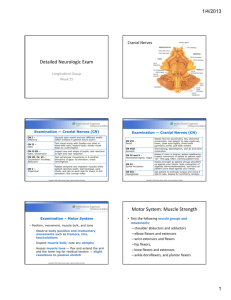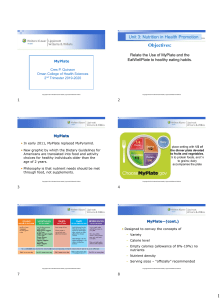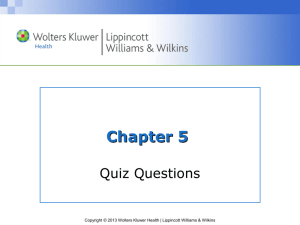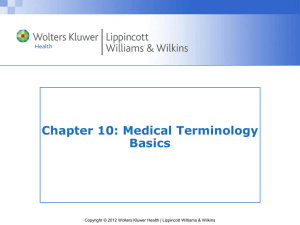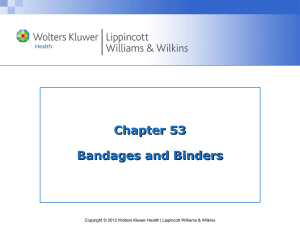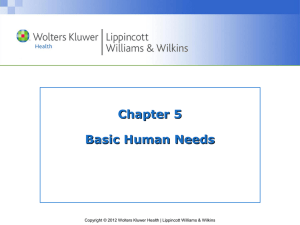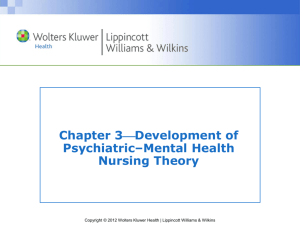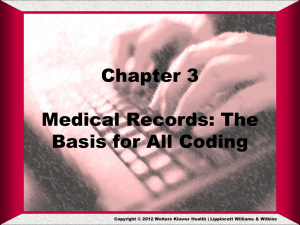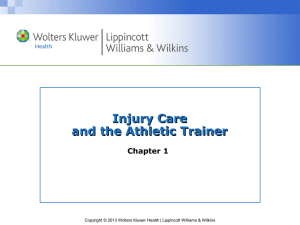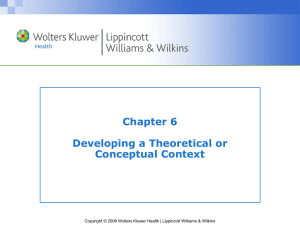Chapter 8 - Wolters Kluwer Health
advertisement
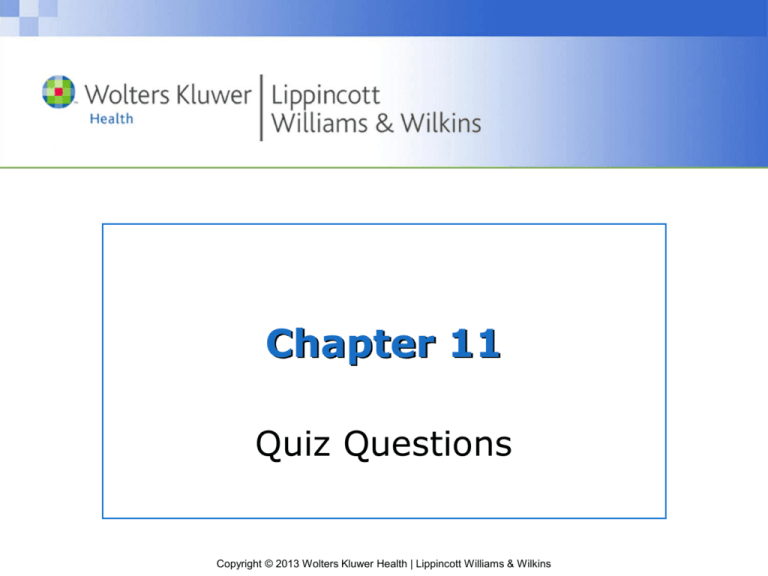
Chapter 11 Quiz Questions Copyright © 2013 Wolters Kluwer Health | Lippincott Williams & Wilkins Question, #1 • A swimmer who predominantly swims the butterfly stroke is likely to develop: A. cervical lordosis B. cervical kyphosis C. thoracic kyphosis D. thoracic lordosis Copyright © 2013 Wolters Kluwer Health | Lippincott Williams & Wilkins Question, #2 • What is the most common mechanism of injury for severe cervical spine injuries? A. shearing force B. compressive axial loading C. tensile force D. traction force Copyright © 2013 Wolters Kluwer Health | Lippincott Williams & Wilkins Question, #3 • Injury to a nerve that results in temporary neurologic deficits followed by complete recovery of function is termed: A. axonotmesis B. neurapraxia C. neurotmesis D. paresthesia Copyright © 2013 Wolters Kluwer Health | Lippincott Williams & Wilkins Question, #4 • Which cervical nerve is being tested when a manual muscle test of the triceps brachii is performed? A. C5 B. C6 C. C7 D. C8 E. T1 Copyright © 2013 Wolters Kluwer Health | Lippincott Williams & Wilkins Question, #5 • An athlete has sustained a sprain to the cervical region and is having radiating paresthesia down the left arm. What should be done for this athlete? A. refer to a physician B. immobilize the shoulder joint C. apply heat therapy D. apply traction Copyright © 2013 Wolters Kluwer Health | Lippincott Williams & Wilkins Question, #6 • The functional unit of the spine is called the A. intervertebral disc B. ligamentum nuchae C. motion segment D. vertebrae Copyright © 2013 Wolters Kluwer Health | Lippincott Williams & Wilkins Question, #7 • A loss of cerebrospinal fluid around the spinal cord because of deformation of the spinal cord or a narrowing of the neural canal is called A. spina bifida B. Scheuermann's disease C. spinal occlusion D. spinal stenosis Copyright © 2013 Wolters Kluwer Health | Lippincott Williams & Wilkins Question, #8 • If a unilateral cervical dislocation is present, the neck will be visibly tilted in what direction? A. away from the dislocated side B. toward the dislocated side C. toward extension of the neck D. toward flexion of the neck Copyright © 2013 Wolters Kluwer Health | Lippincott Williams & Wilkins Question, #9 • Which of the following characteristics would suggest a cervical sprain rather than strain? A. restricted ROM B. symptoms that persists for several days C. pain D. stiffness Copyright © 2013 Wolters Kluwer Health | Lippincott Williams & Wilkins Question, #10 • In a brachial plexus injury, pain is usually transient and resolves itself in 5 to 10 minutes. A. True B. False Copyright © 2013 Wolters Kluwer Health | Lippincott Williams & Wilkins Question, #11 • The cervical spine forms a curve that is convex anteriorly. A. True B. False Copyright © 2013 Wolters Kluwer Health | Lippincott Williams & Wilkins Question, #12 • The vertebrae that consists of a bony ring with large , flat, superior articular facets on which the skull rests is the A. annulus fibrosus B. atlas C. axis D. dens Copyright © 2013 Wolters Kluwer Health | Lippincott Williams & Wilkins
